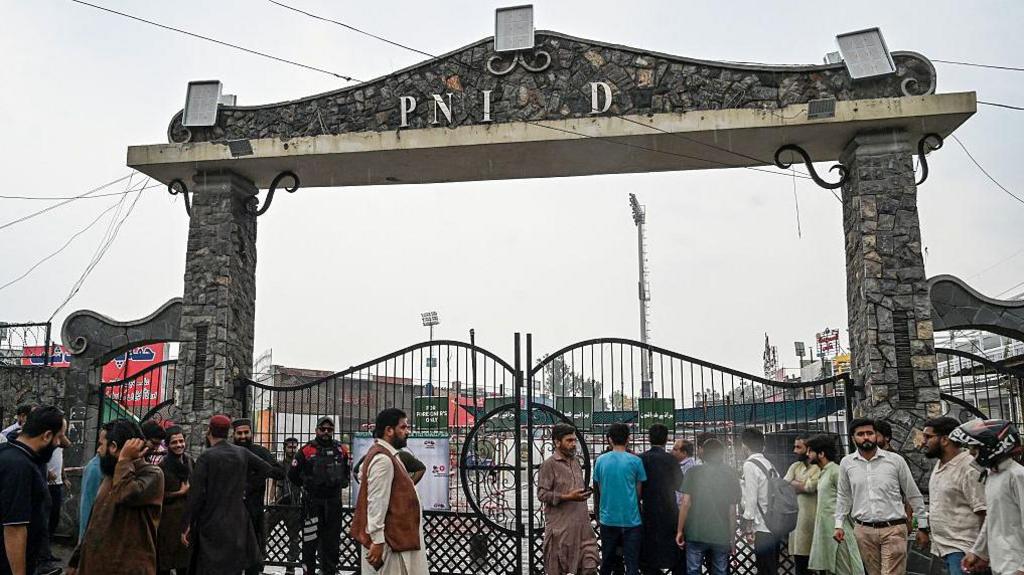The Pakistan Super League (PSL), a premier cricket tournament, is currently contemplating the suspension of the remainder of its season amidst escalating tensions between Pakistan and India. The situation was directly influenced by a series of violent incidents that have resulted in significant loss of life and heightened military activity in the region. Following the latest developments, the PSL is weighing all possible options, which may include postponing the tournament for several weeks or potentially relocating the remaining matches either to a single city within Pakistan or even abroad.
The urgency of these considerations stemmed from a troubling series of airstrikes that have tragically killed 31 individuals and injured 57 others in both Pakistan and Pakistan-administered Kashmir. The attacks were part of India’s response to a deadly militant incident aimed at Indian tourists in Kashmir the previous month. This hostile backdrop has raised considerable concerns about the safety of players and officials involved in the PSL.
In the wake of these events, players from various franchises met urgently to discuss their concerns for safety. Among the cricketers actively participating in this season’s PSL are several English players, such as James Vince, Chris Jordan, Tom Curran, David Willey, Sam Billings, Luke Wood, and Tom Kohler-Cadmore, along with English coaching staff affiliated with different teams. On Thursday, a scheduled match between Peshawar Zalmi and Karachi Kings slated to take place in Rawalpindi was called off due to these rising security fears.
Confirming the escalation of these security issues, reports indicated that the Pakistan military dismantled Indian drones in several Pakistani cities. A representative of the Pakistan Cricket Board (PCB) relayed to BBC Sport that during the escalation, a drone misfired, leading to an explosion in an area behind the stadium in Rawalpindi, although these claims could not be independently verified by the BBC. While grasping for solutions, PSL organizers are pressing forward with the hope that all remaining fixtures will be played, provided that player welfare remains prioritized. A senior PCB official echoed this sentiment, stating that not only Rawalpindi, but other significant cities such as Lahore and Karachi may also encompass security risks, thus raising a cloud of uncertainty about the safety across Pakistan given the military conflicts.
The English players have found themselves in a delicate situation where discussions regarding the possibility of returning to the UK have revealed diverging opinions amongst them. They’ve consulted with the Professional Cricketers’ Association (PCA) to deliberate on their best course of action given the volatile environment. Tensions in the tournament are compounded by the presence of other high-profile international players, including Australian David Warner with Karachi Kings and former West Indies captain Jason Holder, who plays for Islamabad United. Their situation reveals a broader context where external pressures are punishingly palpable.
Adding another layer to this cricketing drama, the UK foreign office has advised against all but essential travel within a five-mile radius of the India-Pakistan border, reflecting the severity of the situation. In comparison, the Indian Premier League (IPL) had its own setback when a match in Dharamsala was interrupted shortly after commencing due to malfunctioning floodlights. This climatic change in cricket across South Asia shows how political tensions can directly influence the sport, harming the spirit of sportsmanship and the league’s commercial aspects.
Lastly, a backdrop of violence became evident with 26 civilians’ fatalities in Indian-administered Kashmir last month, attributed to militant activities that India has linked to Pakistan, an assertion that Pakistan has vehemently denied. The Indian military ramped up its efforts with “Operation Sindoor,” escalating strikes to counter perceived threats. This increasingly hostile atmosphere underscores the complex interplay between sport and political strife, ultimately compelling cricketing authorities to focus on ensuring safety and the continuation of the game.



